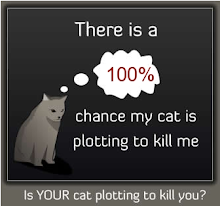In the previous post I addressed the problem of factory farming and the welfare issues it creates. In response to the overwhelming weight of the problem and its seeming insolubility, many of us have chosen to reduce or eliminate our consumption of animal products. But is this the most moral choice? Is it the most practical one?
Image Credit: NIH/National Library of Medicine
The problems of vegetarianism
Vegetarianism tends to ignore the barbaric conditions of most conventional egg and milk producing operations in the country today. In truth, a strong argument could be made for the intrinsic inhumanity of any milk or egg producing system, no matter how welfare-oriented. Male chicks are destroyed as hatchlings; on conventional factory farms, egg-laying hens are crowded into battery cages. Even the Human Farm Animal Care Association permits slight beak trimming on its certified farms. Male newborn dairy calves are removed from their mothers, and are destroyed or siphoned off into baby beef or veal production. Cows have been bred into walking udders that are milked three times a day, and are always eating in an attempt to keep up with such a huge caloric demand. Thus, a vegetarian must consider sourcing eggs and milk from welfare-intense systems to be eating humanely.
Image credit: GoingVeggie.com
The problems of veganism
TThe clearest ethical argument is that killing animals for food is wrong, no matter how they are raised. From the point of view of the individual, how can this be an arguable position? However, seen from the point of view of our species as a whole, it becomes less clearcut, less black and white. Certainly, there are evolutionary reasons that we eat meat; losing our dependence on fibrous leaves and switching to meat may have coincided with the weakening of our jaw muscles, allowing our skulls to expand and our brains to enlarge. (To learn more about this concept, see here.) It is ironic that meat consumption may be coupled to the development of brains that are big and complex enough to consider the ethical problem of eating meat!
Should we override our omnivorous genetic imperative? Or are there are other reasons besides evolution to justify the consumption of animal products in a morally conscious modern society?
Certainly health concerns surrounding veganism abound in the literature. But, even if every vegan could manage a healthy diet, a totally vegan world is not a viable solution. Healthy veganism simply is not attainable in third world countries where sources of grains may be limited due to inhospitable soil or climate. One hopeful opportunity to reduce our dependence in the future is synthetic meat production, such as the recent creation at the University of Missouri of a soy chicken that not only tastes like poultry meat, but has a similar texture. The practical employment of universally available, palatable meat alternatives unfortunately is still years away.
Grain production is not a kill-free proposition. Steven Davis from Oregon State University makes a convincing argument that consumption of grassfed ruminants will result in fewer animal deaths than veganism, which requires a heavier diet of grain. As fields are turned over during planting and harvesting, nests of small mammals, such as field mice, are disrupted and babies destroyed. The counterargument is that death from grain production is accidental, whereas animals reared for food are deliberately killed.
Lastly, vegetarianism and veganism are also unlikely to be adopted by a majority and thus are slow and ineffective ways to bring about change in food animal welfare. A recent survey conducted by a Harris Poll for Vegetarian Times in 2008 showed that “3.2 percent of U.S. adults, or 7.3 million people, follow a vegetarian-based diet. Approximately 0.5 percent, or 1 million, of those are vegans, who consume no animal products at all.” A personal choice to become a vegan certainly gets one off the ethical “hook” but it does not address the fact that most of the world will never be vegan, at least not for generations to come. We must seek a faster solution. We must consider the right of all food animals to a decent life. This is as much a moral imperative as is the avoidance of consumption.
Next: What are our options?




















Your conclusion sums it up: animals have a right to a decent life.
ReplyDeleteI am endlessly frustrated by debates on eating meat where no one even raises the issue. Thank you for this post, and for pointing out how vegetarianism is no answer.
Fascinating. Do continue, please.
ReplyDeletePart 3 will be posted tomorrow. Glad you're enjoying it. She's doing GMOs next.
ReplyDelete